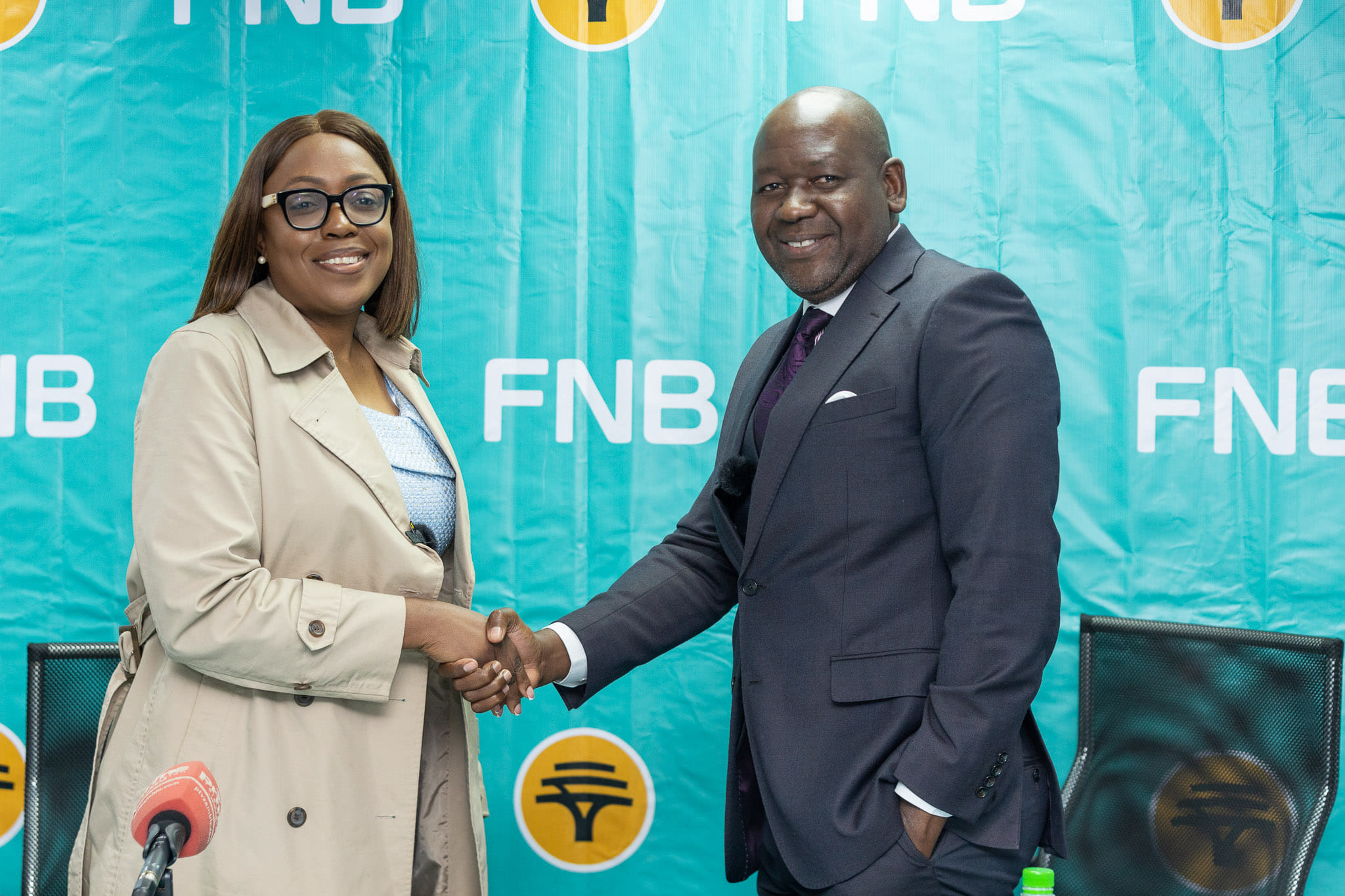By John Chola
Worldwide fund for nature (WWF) Country Director, Nachilala Nkombo says as Africa faces a huge investment scarcity and the continent’s annual financing gap for WWF Zambia now estimated at approximately US$ 2.8 trillion, or US 250 billion each year, there is urgent need for Zambia to tap on existing and new sources of patient private green capital to accelerate its transformation.
In a bid to help reverse Zambia’s deficit by tackling the climate change impact, WWF Zambia and the first national bank (FNB) Zambia have partnered to establish a strategic relationship.
Nkombo said the partnership presented a fantastic window of opportunity for bankable nature solutions to start leveraging the much needed financing using the right financial instruments.
“Measuring the potential effects of climate change on financial institutions is a challenging task. Therefore, WWF Zambia partnering with FNB Zambia will support the bank in developing tools, methodologies and processes to address the climate risk that banks face,” Nkombo said.
She noted that WWF Zambia was better placed to assist in assessing environmental risk to FNB Zambia and outlining investment opportunities in a rapidly changing climate and environment by utilising various methods such as the water risk filter, biodiversity risk filter, science-based target initiatives, and sustainable banking assessment.
“We would like to see continuation of our joint efforts for building a long-term and strategic partnership between WWF Zambia and FNB Zambia. The adoption of this MOU is very timely because it will put us on the road to closer cooperation between us to help bridge the green financing gap,” said Nkombo.
She explained that the MOU focuses on key areas of cooperation including strengthening the capacity of joint organisations in greening the financial ecosystems and estimating climate risks for better adaptation and mitigation measures, to improve the investment climate; by creating green instruments for businesses that will improve access to green capital
She said one other key area of the cooperation was to expand finance and business opportunities for climate resilient business cases; and to alleviate poverty, by narrowing the development gap in order to reach the net zero target through support to SMEs.
WWF partnering with FNB Zambia will support the bank in developing tools, methodologies and processes to attack the climate risk that banks face.
Measuring the potential effects of climate change on banks is proved no simple task hence WWF Zambia will bear the responsibility of ensuring that the environmental return is accurately and timely measured and reported to FNB Zambia.
The MOU means WWF to use its initiatives under the green finance unit such as mobilising more for climate which derisks green business cases and primes them to receive the requisite capital that is needed.
“We envision that, through this partnership, the portfolio of sustainable businesses that are being incubated and supported under the WWF green finance unit will be positioned for green finance capital from FNB,” said Nkombo.
Speaking during the signing of the MOU, FNB Zambia chief executive officer, Bydon Longwe said, “at FNB we are aware that the environmental, social and governance (ESG) topic has become critical in how business is undertaken. As a bank that is constantly evolving with the ever-changing needs of our customers and society, this partnership with WWF today amplifies our intent to help create a better world and society for all, in line with our ethos”.
FNB Zambia and WWF Zambia’s partnership will cover key initiatives built on the sustainability umbrella which are financial intermediation that provide linkages for investors to borrowers in a quest to improve access to capital as strong demand often outstrips supply which may result in attracting a more diversified pool of investors.
Transaction structuring initiative will include assistance to customers/investors in realising the benefits to be accrued for their sustainability investments and structuring of green bonds among other sustainable finance needs.
Conditional underwriting will lead to offering customers the option to access finance or re-financing for eligible green assets/projects and other assistance in form of provide guidance on use of proceeds, management of proceeds, process for project evaluation and selection and reporting; including demonstration of links to renewable energy, biodiversity conservation, sustainable water management, pollution prevention and control and green buildings, among other initiatives.
Green, social, and sustainable (GSS) bonds market is a new frontier believed can help Zambia build a deeper, resilient, and sustainable financing.








